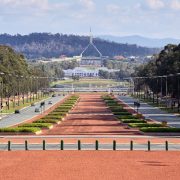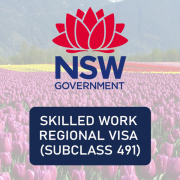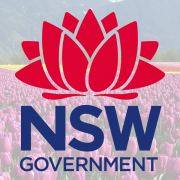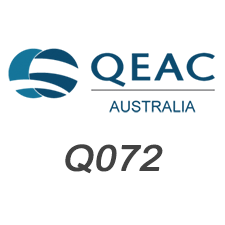Tasmania Interim visa nomination allocations and priorities August – October 2020
Interim visa nomination allocations and priorities
August – October 2020
What has changed?
The Department of Home Affairs has issued an interim allocation of subclass 491, 190, 188 and 132 visa nomination places to states and territories. These allocations will be updated after the 2020-21 Federal Budget is handed down in October.
The Department of Home Affairs has directed that until this time, all nominations must be justifiable in relation to their likely contribution to Australia’s economic recovery, and follow three priorities:
- High quality subclass 188 and 132 (Business Innovation and Investment Program) nomination applications.
- Applicants critical to supporting Tasmania’s response to the COVID-19 pandemic, including individuals providing critical or specialist medical services, critical skills required to maintain the supply of essential goods and services, or delivering services in sectors critical to Australia’s economic recovery.
- Applicants currently in Australia who can demonstrate their capacity to meaningfully contribute to economic recovery.
What does this mean for applicants?
All new and existing nomination applications will be considered according to these priorities, with those in critical roles being nominated first.
Existing applicants who are not in critical roles will be considered only after priority applications for critical roles have been processed.
Decisions on non-critical role applications may not be available until October or later. Only those applicants with the most compelling claims will be nominated.
Imminent visa expiry is not sufficient to give priority to an application. If your visa is about to expire you should contact the Department of Home Affairs or a Registered Migration Agent about your visa options.
What does it mean for applications lodged before 1pm (AEST), Tuesday 25th August 2020 (Subclass 491 / Subclass 190)?
Migration Tasmania willemail all applicants who lodged their application, offering them an opportunity to either:
- request priority consideration on the basis that they are engaged in a critical role supporting the health system or the Tasmanian economy, or
- withdraw their application for nomination and receive a full refund of the application fee, or
- continue with their application in respect of a requirement to demonstrate that their nomination will lead to a genuine ongoing and meaningful contribution to Tasmania’s economic recovery.
Applicants who request their application continue to be considered for nomination will not receive a refund regardless of the outcome.
Applicants who are not employed in critical roles will not be nominated unless they can strongly demonstrate that their nomination will genuinely benefit economic recovery in Tasmania.
There is no guaranteed timeframe for an outcome and applicants in non-critical roles may not receive an outcome until October or later.
Migration Tasmania will competitively assess all existing applications in accordance with priorities established by the Department of Home Affairs.
With the very limited number of nomination places available, nomination cannot be guaranteed and only those in critical roles or able to provide the most compelling claims will be supported.
What does it mean for applications lodged after 1pm (AEST), Tuesday 25th August 2020 (Subclass 491 / Subclass 190)?
All new applications lodged after 1pm (AEST), Tuesday 25th August 2020 must meet the minimum requirements of their chosen nomination category and demonstrate that the applicant is critical to supporting Tasmania’s response to the COVID-19 pandemic and recovery.
Applicants must provide a letter of support from their employer clearly explaining how their role is critical to providing medical services, the supply of essential goods and services, or delivering services in sectors critical to Tasmania’s economic recovery. If an applicant cannot show that their role is critical, it will not be supported for nomination.
This requirement will be reviewed after the Federal Budget in October when full details of the 2020-21 nomination allocations and requirements are announced by the Department of Home Affairs.
What are critical roles?
The Department of Home Affairs provides guidance on critical roles or critical skills at https://covid19.homeaffairs.gov.au/critical-skills-and-sectors#toc-1. For Tasmania these roles include those:
- directly assisting in Tasmania’s COVID-19 response directly engaged by Tasmanian Government
- providing critical or specialist medical services or delivering medical supplies potentially associated with COVID-19 response. This includes all general nursing and medical positions with the Tasmanian Health Service
- directly involved in the supply of essential goods and services (medical technology, critical infrastructure, telecommunications, engineering and mining, supply chain logistics, agricultural technology, food production, and the maritime industry) including highly skilled and specialised roles in:
- infrastructure engineering and maintenance such as dams, large-/high-complexity bridges, irrigation schemes, transport logistics planning and maintenance
- agriculture such as artificial insemination technicians, wool classers, livestock pregnancy scanners
- the supply of essential goods and services which would be in jeopardy without the applicant.
*This does not include lower level positions such as retail workers, harvest labour, delivery drivers, or warehouse staff.
- delivering services in sectors critical to economic recovery such as financial technology, large scale manufacturing, film and television production and emerging technology which:
- must be high-value/highly-skilled/specialised roles
- would normally include a significant and recognised contribution to export income, significant flow-on employment and economic benefits, high-value national/ international exposure.
*This will not generally include small scale, locally-oriented operations.
In addition, Tasmania will accept new applications from people employed in:
- health and allied health occupations, including in private and not-for-profit sectors
- senior support workers/enrolled nurses/registered nurses in aged, disability and community care (minimum diploma qualified).
The scope of these priority areas may change as the needs of Tasmania’s economy evolves.
What is a genuine, ongoing and meaningful contribution to the Tasmanian economy?
Every nomination must be justified in terms of an applicant’s potential to contribute to economic recovery in Tasmania. The onus is on the applicant to demonstrate how they meet this requirement.
Supporting claims may include:
- employment in highly skilled, hard to fill roles
- high value skills or experience not readily found in the local community
- long-term high-value financial contribution to the local economy leading to additional employment outcomes for locals
- involvement in Tasmanian business or enterprise that is significantly reliant on the applicant’s ongoing presence in Tasmania
- a clear, plausible potential to live in Tasmania and contribute to the development of skills which are needed in Tasmania.
What does it mean for Subclass 188 and 132 visa nomination applications?
More information on interim business nomination program arrangements and priorities will be available in the near future.
Where can I find more information?
Further information about the interim program priorities and advice for applicants can be found here.
Subclass 491 – Skilled Work Regional (Provisional) Visa
The rapidly evolving situation regarding COVID-19 has necessitated temporary changes to eligibility for the Subclass 491: 3A Overseas Applicant (TSOL) nomination category.
As of 20 March 2020, applications for this category are temporarily restricted until further notice to occupations listed in the ‘High Demand’ section of the Tasmanian Skilled Occupation List (TSOL). Please do not LODGE or PAY for a Category 3A application if your occupation is not in the ‘HIGH DEMAND’ on the TSOL. Your application will NOT be assessed.
Applications under Category 3A lodged prior to this date which specify other occupations will still be considered. Applicants with ‘High Demand’ occupations will, however, be given priority. This means processing times for other Category 3A applications with occupations not listed in the High Demand section will become extended (approximately 6 months from lodgement).
The updated Tasmanian Skilled Occupation List (TSOL) can be found here.
Subclass 190 – Skilled Nominated Visa
Meeting the minimum nomination requirements does not guarantee that you will be offered state nomination from the Tasmanian Government. The Department of Home Affairs sets a nomination quota for the state each year, which limits the number of applicants that can be nominated.
If you are able to meet the minimum nomination requirements, your application will be competitively assessed against other eligible applications, with a focus on your ability to address a number of criteria, including:
- your demonstrated ability and commitment to establishing yourself, and any dependents, in Tasmania with a view to your prospects for long-term settlement in the state
- the demand for your particular skills and expertise, and your ability to find work in Tasmania
- the suitability and transferability of your qualifications, skills and experience – including any specialist capabilities – to the needs of Tasmania’s labour market
- the skills and background of dependent family members
- your level of English language competency
Applicants who have skills in areas of particular need within the Tasmanian economy will be held in high regard, particularly if living in an area outside of Greater Hobart. These include:
- health
- trades and construction
- engineering
- community services (including aged and disability care)
Disclaimer: The document is provided for general information purposes only. Your use of any of this information is at your own risk, and you should not use any of this information without first seeking legal and other professional advice. The provision of this document (and the documents themselves) do not constitute legal advice or opinions of any kind, or any advertising or solicitation. No lawyer-client, advisory, fiduciary or other relationship is created between VIVID EDUCATION and any person accessing or otherwise using any of the information. Vivid Education and its affiliates (and any of their respective directors, officers, agents, contractors, interns, suppliers, and employees) will not be liable for any damages, losses or causes of action of any nature arising from any use of any of this information.















